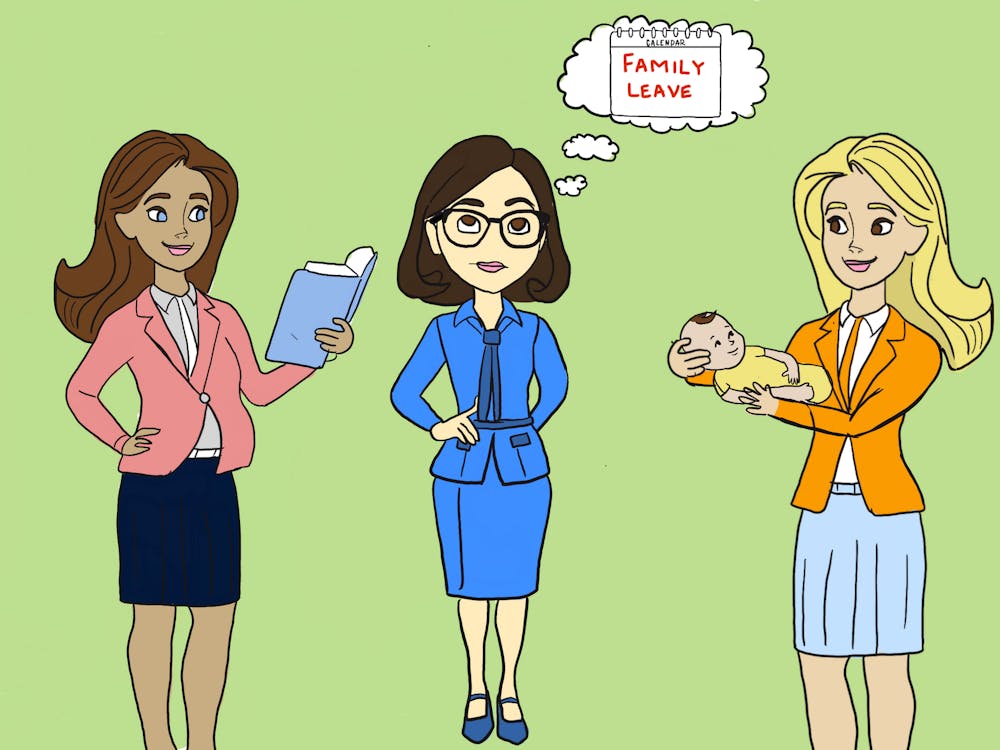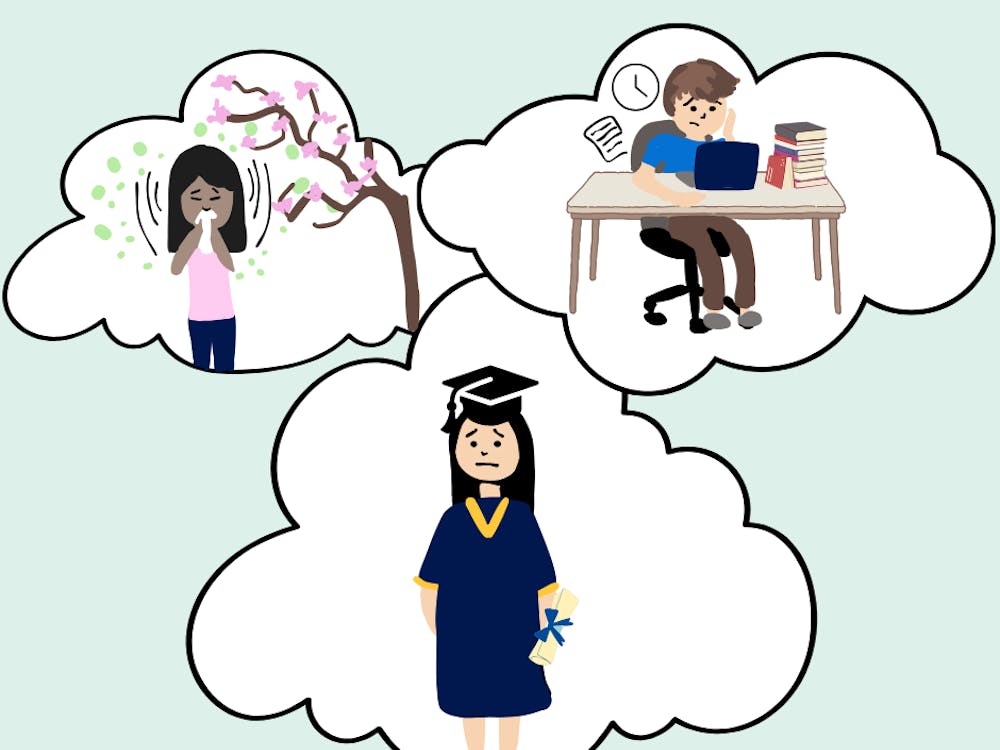New York may be far from Virginia, but it’s not “13 hours” far.
During the summer, I drove my 1995 white Ford Taurus — a pretty little car with a turning radius comparable to that of a tugboat — from Charlottesville to Long Island for my brother’s high school graduation.
It began as an unremarkable drive. I sang along to the “Wicked” soundtrack until my iPod ran out of battery. Then, five minutes after this ominous sign and 15 miles outside the Delaware border, something suddenly felt wrong.
The car tensed up, the steering wheel stiffened and the car slowed down. Racing against my car’s rapid paralysis, I veered off the road and onto the fortuitously wide left-hand shoulder. I came to a stop, assessed the situation and determined that, miraculously, I was out of harm’s way.
And then, madness.
I tried my dad’s over-the-phone DIY suggestions to no avail. I called Triple-A and was denied a tow truck because my name was not on the family account. I called a second phone number and was shut down by a snarky receptionist. I accepted I would miss my brother’s graduation.
I weighed the possibility of bladder infection against the threat of a public indecency charge for relieving myself on a major interstate highway.
I rode in a tow truck. I waited in an autobody shop. I was told my car would be ready soon. A few hours later, I was told it would have to stay overnight. I struggled to rent a car because I was under 21.
I was simultaneously relieved, tired, frustrated and ready to wallow in self-pity for the rest of the night when I finally secured a car with Hertz and was retrieved from the shop by an (unbearably ironic) black 2012 Ford Taurus. As such, I was unprepared for the conversation with my unsmiling driver.
“Hello, I’m Chris,” he said. “You know, this isn’t my dream job.”
I didn’t know that. But I would soon.
Entirely unsolicited, Chris recounted his professional frustration as we drove. He apparently finds his previous military career frustratingly wasteful and feels working for the federal government is inefficient. He really wants to work for the Delaware state government, but can’t get his foot in the door — Delaware has severe problems with nepotism, he said, and one in every seven state employees is a blood relative of another. Chris has no connections.
I marveled at him as he unloaded his frustrations to an unsuspecting stranger, responded to his burdens with the sympathy I could muster and wondered why I was being made privy to other people’s frustrations when I was already dealing with my own.
The universe punished me for that question.
Some hours later, I was finally in possession of a working vehicle and reached the end of the Jersey Turnpike. I pulled into a toll lane just as the teller was preparing to change shifts. In the spirit of the day, I came up short on cash. As I rifled through my bag, I heard her complain to her co-worker, “It’s always the last one, isn’t it?”
I was crushed. I was so keenly aware of my own exhaustion that her impatience was a dagger into my soul. I wanted to tell this unsympathetic lady about the series of unfortunate events which had landed me where I was. What had happened today to make her so darn feisty?
An hour later, I hit yet another toll. I explained my cashless predicament to the teller. As he instructed me to pull over, the car behind me honked. I was near the breaking point, and I may have audibly sworn. The impatience was driving me mad. I just wanted to go home.
I pulled to the side. The person behind me drove through the toll and instead of continuing on his way, he rolled down his window.
“I paid for you,” he said. “You can go!”
I was floored.
My drive had taken twice as long and involved three times as many vehicles as I had anticipated. I had experienced my own frustrations and the frustration of others. I had stopped expecting kindness. But yet, there it was.
We have all had days when nothing seems to be in our favor, when we are acutely aware of every way the universe has slighted us. They affect our interactions with others. They limit the patience we have, the sympathy we offer and our ability to see the long term and see beyond ourselves.
That said, we can’t prevent bad days from happening. But we can mitigate them.
The driver didn’t know about my day, but he did improve it. His action not only lifted my mood, but it inspired me to pay that same sort of kindness forward.
It countered all of the projections of frustration I had felt — and contributed to — all day. And if one stranger’s act could alleviate that much tension and inspire a desire to pass a favor along, then I now had a palpable understanding of how much frustration could be alleviated and how many days could be improved if everyone projected kindness not only onto those they knew, but also into the vast anonymity of the universe.
We all have personal problems. But I believe unconditional kindness is the universal solution.
Caroline’s column runs biweekly Thursdays. She can be reached at c.trezza@cavalierdaily.com.






